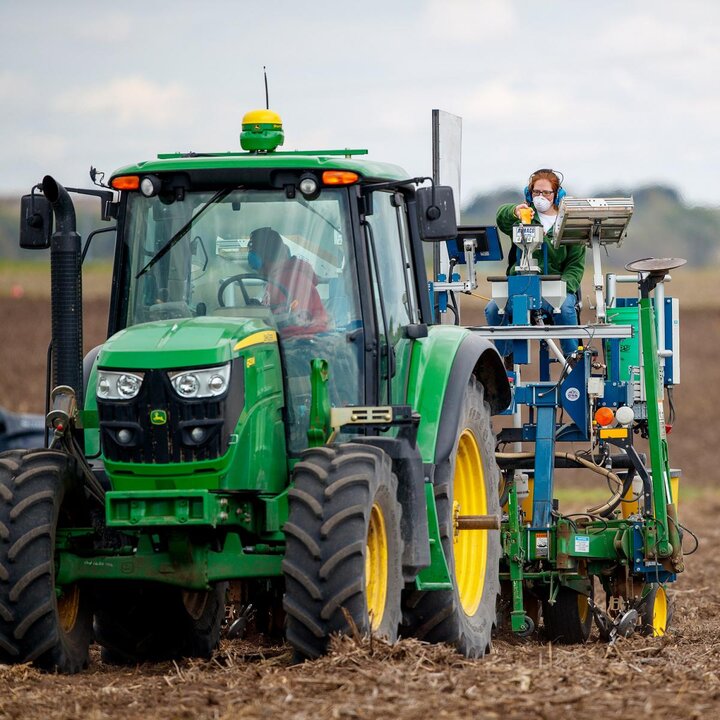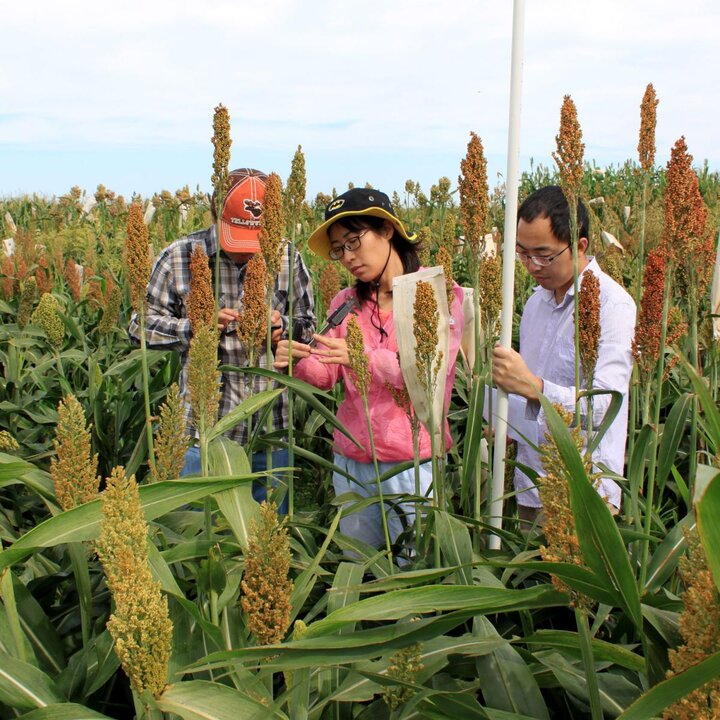Weed science research at University of Nebraska−Lincoln ranges from basic studies of weed biology and ecology to complex projects for designing production practices to improve crop resilience based on the principles of integrated weed management (IWM). Working knowledge of the comprehensive principles of IWM is critical. A single weed control measure is not feasible due to the number of weed species and their highly diverse life cycles and survival strategies. In addition, control practices based on only one method give weeds a chance to adapt to those practices.
Field studies, greenhouse and laboratory experiments are conducted by weed scientists located at three research-extension centers and main campus in Lincoln, covering several Agro-Eco-Zones across Nebraska. Our sub-disciplines include: (a) weed biology, ecology and whole plant growth analysis, (b) herbicide technology and (c) chemical and non-chemical weed control in agronomic crops, range land and pasture. Environmentally sound IWM program is also based on building bridges between the above sub-disciplines.
Ongoing research examines the complexity and importance of various interactions in managed and natural ecosystems, including crop-weed interactions, plant-herbicide-environment interactions, and plant physiological response to solar radiation, water, and nutrients as it impacts interplant competition.
The evolution of weed resistance to commonly used herbicides (triazines, ALS, glyphosate, HPPDs) and their widespread occurrence across the state is the largest problem in crop production. Understanding the dissemination (pollen and seed-mediated gene transfer) and mechanisms of herbicide resistance evolution (target and non-target site of resistance) is also investigated. Non-chemical methods for control of problem weeds in organic, herbicide-resistant, and conventional crops are assessed. Evaluation of sprayer technology and pesticide safety education is also conducted routinely. Research results are shared with public (agricultural communities, stakeholders, producers) as well as at weed science/agronomy scientific meetings and published in peer reviewed scientific journals. Our team is leading production of Guide for Weed, Disease and Insect Management in Nebraska, the most comprehensive research-based publication in Nebraska.
Related Programs
Some faculty within the Department of Agronomy and Horticulture also advise and mentor graduate students admitted through the following programs.







